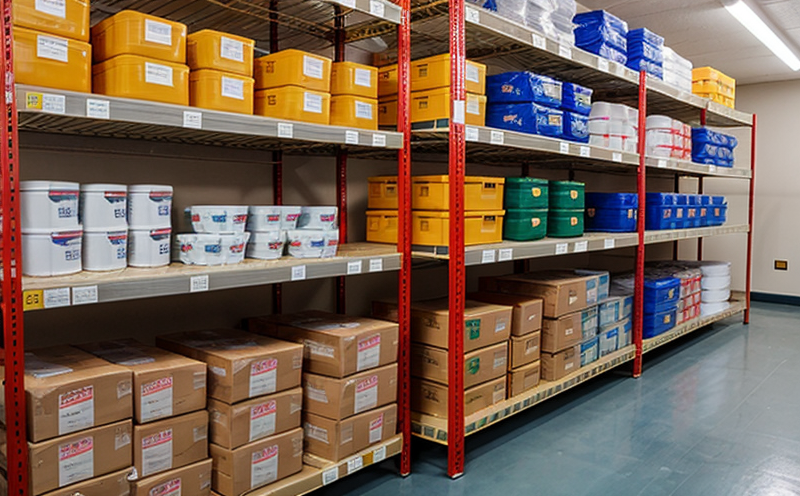Oxidative Stress Stability Testing
Oxidative stress stability testing plays a critical role in ensuring the quality and safety of pharmaceutical products over their shelf life. This service is essential for meeting regulatory requirements, maintaining product integrity, and gaining competitive advantage in the market. Oxidative stress refers to an imbalance between reactive oxygen species (ROS) production and antioxidant defenses within living organisms. In pharmaceuticals, oxidative stress can lead to degradation of active ingredients, which may affect efficacy and safety.
The process involves exposing drug formulations to controlled conditions that simulate real-world environments where oxidative stress is likely to occur. This includes exposure to light, heat, humidity, and oxygen. The goal is to assess how these factors impact the stability and shelf life of pharmaceutical products. By understanding the effects of oxidative stress, manufacturers can develop more robust formulations capable of withstanding longer storage periods without compromising efficacy or safety.
Our laboratory employs state-of-the-art analytical techniques tailored specifically for this type of testing. We use high-performance liquid chromatography (HPLC), mass spectrometry (MS), and other advanced methods to monitor changes in chemical composition over time. Our facilities are equipped with climate chambers that can replicate various environmental conditions found worldwide, allowing us to simulate different storage scenarios.
Real-world examples of products benefiting from this service include APIs used in oral solid dose formulations as well as topical creams and ointments. For instance, a client who manufactures an API intended for use in long-term storage required comprehensive stability data before launch. Through our oxidative stress stability testing, we provided them with detailed reports outlining potential risks associated with prolonged exposure to certain environmental factors.
This information enables companies to make informed decisions regarding packaging design and labeling practices aimed at extending the shelf life of their products while ensuring they remain effective and safe throughout this period.
Scope and Methodology
- The testing covers all stages from raw material selection through final product formulation.
- It includes both accelerated aging tests conducted at elevated temperatures and humidity levels, as well as long-term stability studies under normal storage conditions.
- We also perform lifecycle assessments to evaluate the impact of oxidative stress on active pharmaceutical ingredients (APIs).
In addition to these core components, we offer specialized services such as formulation optimization based on our findings and recommendations for improved packaging solutions. Our team works closely with clients throughout each step of the process ensuring accurate results that meet regulatory standards.
International Acceptance and Recognition
- The European Pharmacopoeia (Ph.Eur.) requires oxidative stress stability testing for certain drug products.
- American Society for Testing Materials (ASTM) standards provide guidelines on how to conduct these types of tests.
Our laboratory adheres strictly to internationally recognized protocols ensuring compliance with global regulatory bodies. This allows our clients’ products to be accepted by markets across the globe without additional hurdles or delays due to non-compliance issues.
Competitive Advantage and Market Impact
- By providing robust stability data, we help our clients achieve regulatory approval more quickly.
- The results of our tests give companies insight into potential challenges they might face during product development phases, enabling early course corrections if necessary.
In today’s competitive pharmaceutical landscape, having reliable data on oxidative stress stability is crucial. It not only enhances the reputation of your brand but also fosters trust among consumers who are increasingly concerned about the quality and safety of their medications. Furthermore, successful completion of such testing can significantly enhance your product's market position by demonstrating superior performance over competitors.





